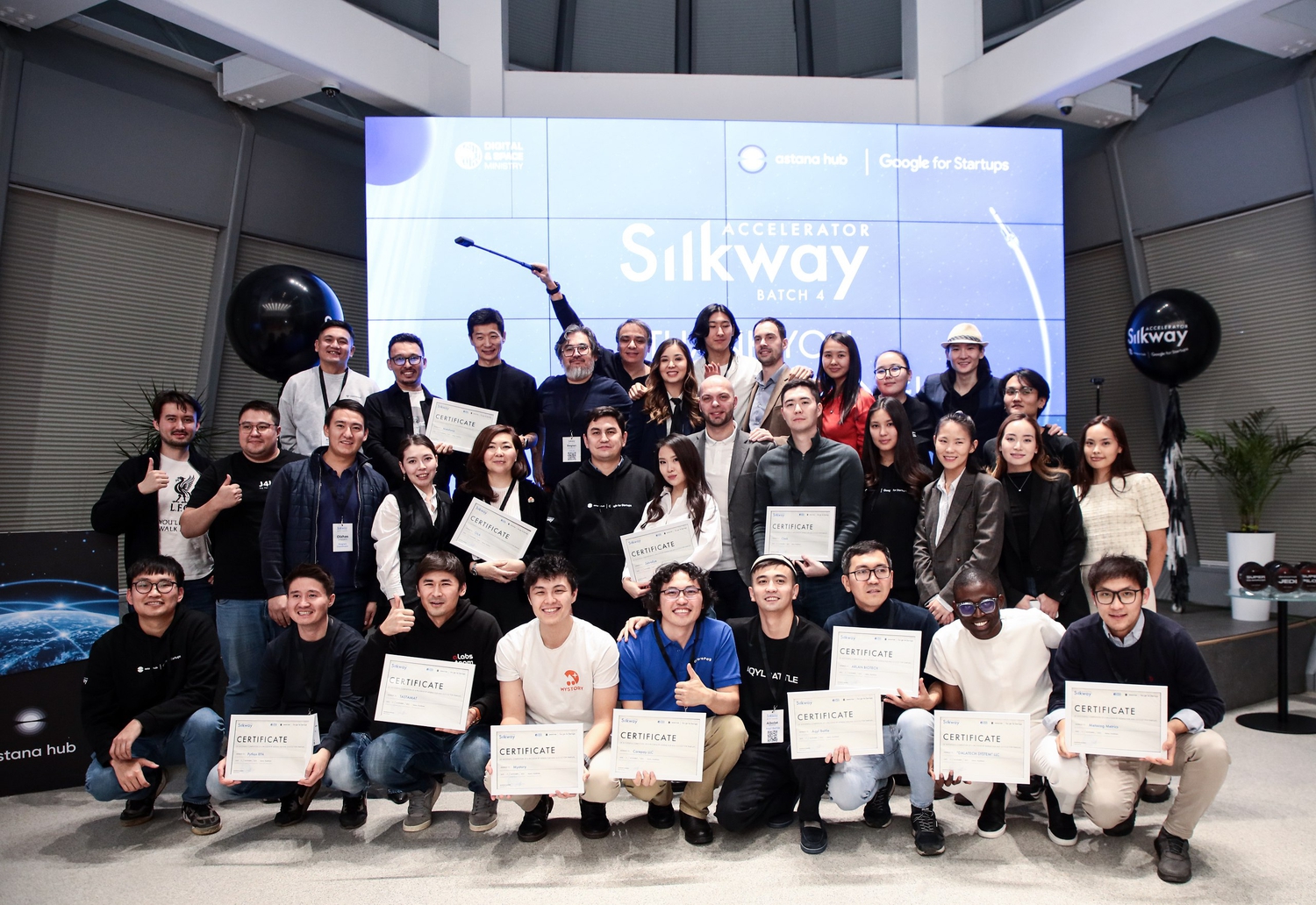ASTANA — In collaboration with Google for Startups, Astana Hub has successfully concluded the fourth stream of the Silkway Accelerator program, with $8.1 million of investments raised during acceleration on Nov. 22, the Astana Hub’s press service reported.

To date, 49 startups have successfully entered international markets through the program, boasting a total valuation of $250 million, an MRR of $2.2 million, and $8.1 million raised during acceleration. Photo credit: Astana Hub.
Over the 12-week intensive program, participants from seven countries witnessed a 4.7-fold increase in Monthly Recurring Revenue (MRR) and collectively secured $450 thousand in investments, with additional preliminary agreements totaling $150 thousand.
The accelerator received a staggering 197 applications from startups spanning Kazakhstan, Georgia, Kyrgyz Republic, Nigeria, Mongolia, Tajikistan, and Uzbekistan. After careful consideration, 15 projects were selected to partake in the program, showcasing the diverse entrepreneurial talent from the region.
Magzhan Madiyev, CEO of Astana Hub, emphasized the strategic importance of Silkway Accelerator in aligning with national economic goals.
“The President set the goal of reaching $1 billion in export revenue by 2026. By analogy with the already created platform in Silicon Valley (USA), we plan to organize the same center in the countries of the Middle East and North Africa (MENA). We strongly support the entry of our startups into these markets, including through the Silkway Accelerator program,” Madiyev said.
To date, 49 startups have successfully entered international markets through the program, boasting a total valuation of $250 million, an MRR of $2.2 million, and $8.1 million raised during acceleration.
One success story is Zebra Eye, a startup utilizing artificial intelligence to diagnose eye pathologies through medical image analysis. The company secured a commitment of $200 thousand from private investors during the accelerator, exemplifying the tangible outcomes of the program.

Yana Ten, CEO of Zebra Eye, said the transformative impact of the Silkway Accelerator will be obvious in the long term. Photo credit: Astana Hub.
Yana Ten, CEO of Zebra Eye, reflected on the transformative impact of the Silkway Accelerator.
“Thanks to participation in the program, we solved problems not only in the business itself but also in people. This big transformation will be more obvious in the long term. We have successfully forged collaborations with government agencies, identified strategies to enter the private clinic market, and captured the attention of the country’s largest networks of multidisciplinary clinics,” she said.
At Demo Day, graduates of the program showcased their innovative startups. Kazakh startups, including Aqyl Battle, OILA, Python RPA, Arlan Biotech, and Tastamat, presented diverse solutions ranging from mobile games to nanobody technology and self-service parcel lockers.

Mongolian Startup Carepay presents a fintech solution dedicated to ensuring universal, accessible, and cost-effective healthcare for all. Photo credit: Astana Hub.
Mongolian startups such as Carepay, Metacog Metrics, and Metaland Metaverse introduced fintech solutions, soft skill assessment systems, and a platform unifying real communications and services, respectively. Uzbek startup Dalatek unveiled its vision of an Amazon-style platform for vegetables and fruits, while the Kyrgyz startup Mystory showcased AI-generated fairy tales where the client is the main character.
In collaboration with Google for Startups, Astana Hub remains the first and only entity to launch an accelerator in Central Asia. Participants benefit from three months of offline training in Astana, including free accommodation, visa support for international participants, and invaluable mentoring from Google for Startups.
The global reach of Google for Startups, encompassing more than 50 coworking spaces and accelerators in 125 countries, provides practical lessons and support for tech entrepreneurs worldwide.
